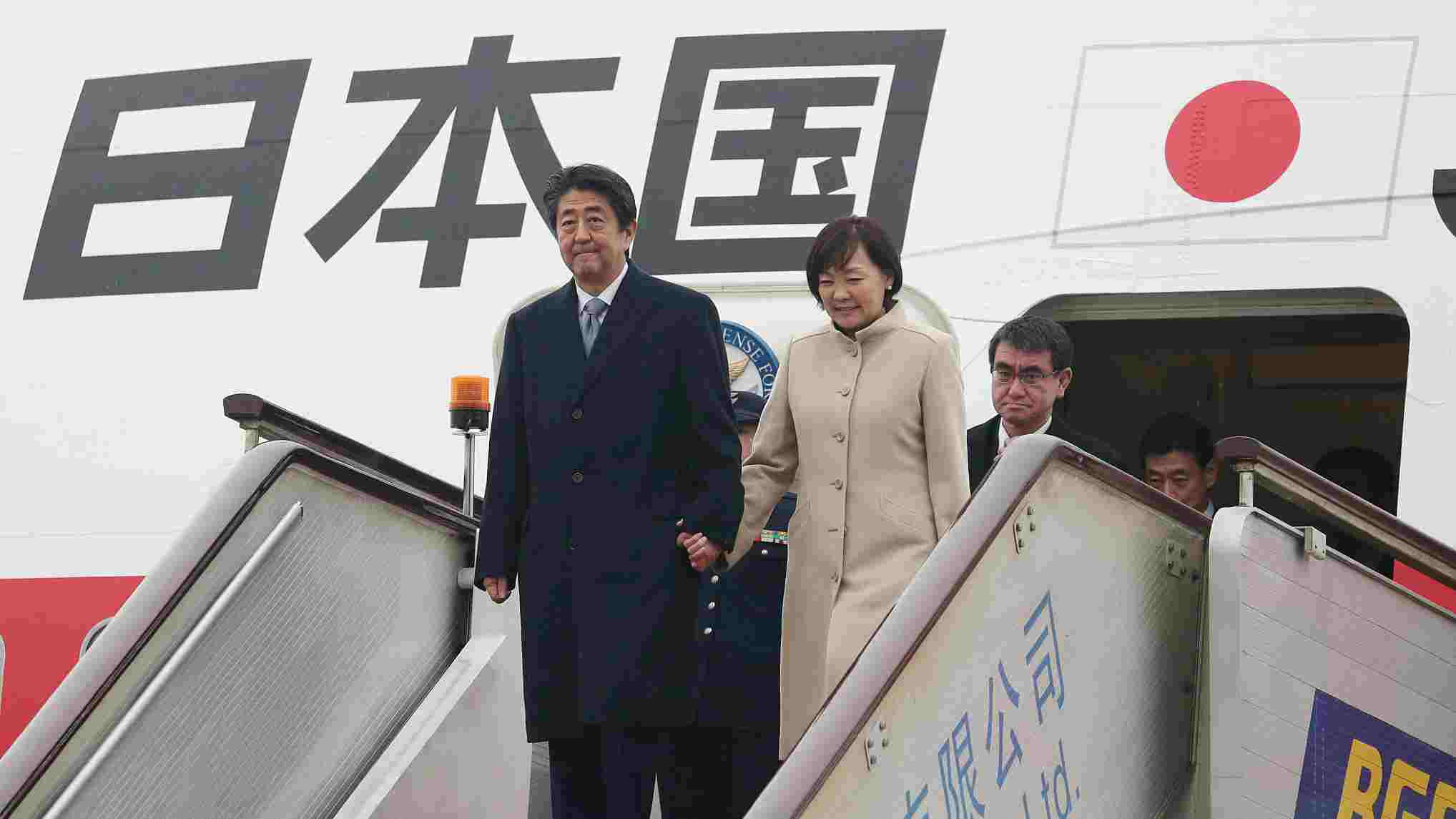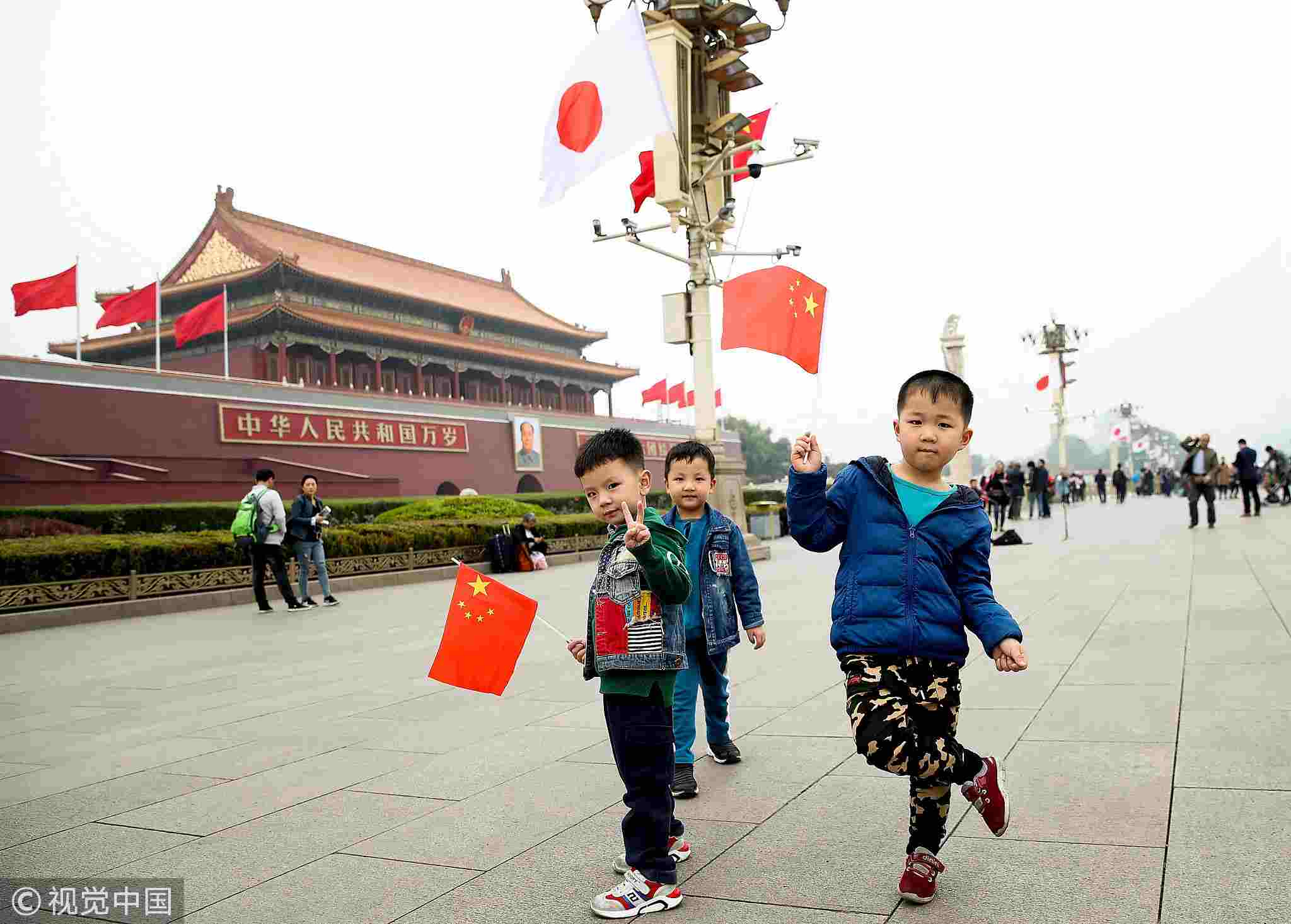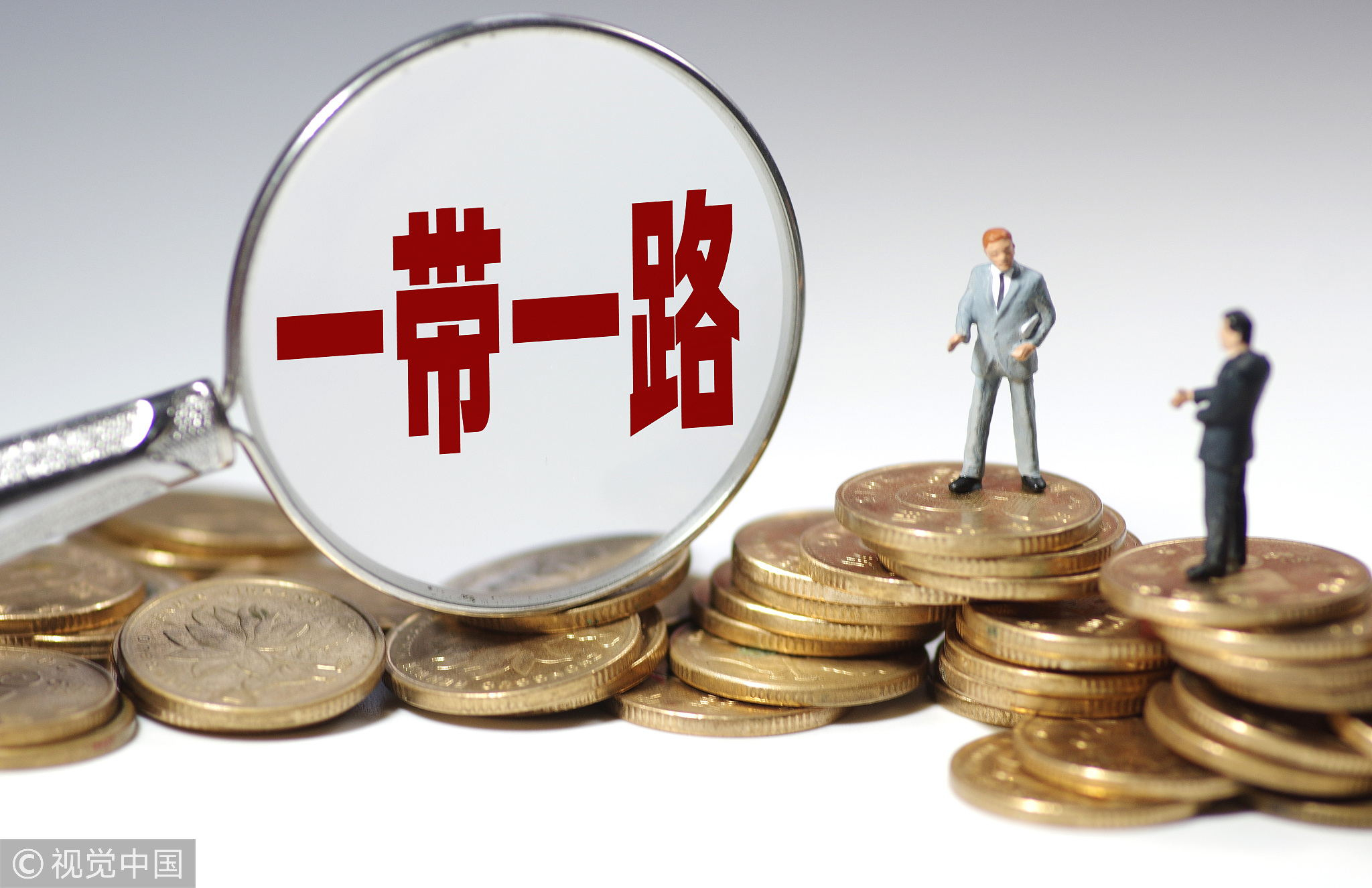
Opinions
13:53, 26-Oct-2018
Opinion: Sino-Japanese relations to warm up by "Belt and Road" pragmatic cooperation
Updated
13:39, 29-Oct-2018
Guan Zhaoyu

Editor's note: Guan Zhaoyu is an associate research fellow at the Chongyang Institute for Financial Studies of Renmin University of China. The article reflects the author's opinion and not necessarily the views of CGTN
Japanese Prime Minister Shinzo Abe pay an official visit to China from October 25 to 27, seven years after the Yoshihiko Noda's visit in 2011 and also the Japanese Prime Minister's official visit to China after seven years. According to previous reports, the topics under discussion between the two sides in this visit will be very broad. However, the author believes that the international cooperation between the “Belt and Road” and the third-party market is still worth paying close attention to.

Boys waves Chinese national flags in front of the Tiananmen Gate in Beijing, China, on October 25, 2018. /VCG Photo
Boys waves Chinese national flags in front of the Tiananmen Gate in Beijing, China, on October 25, 2018. /VCG Photo
Since the introduction of the Belt and Road Initiative in 2013, Japanese officials have maintained a high degree of “concern” and interacted with it with “criticism and questioning” responses and actions from the beginning. Yet recently, Japan has shown a strong desire to participate in cooperation in China's Belt and Road Initiative, which can be attributed to the following aspects.
First of all, in recent years, Japan has seen a successive eruption of “Quality Fraud” incidents, as well as acquisitions of national firms, some of which have been acquired by Chinese companies. For example, Japan's Toshiba was acquired by China's Hisense. These issues all indicate that the Japanese economy has now entered a deeper recession.
The strong monetary stimulus policy adopted by “Abenomics” in the past few years has passed the critical point of efficiency release and began to result in a severe situation and challenge of increasing local firms' operating costs.
Secondly, as the Japanese economy has traditionally relied on overseas markets, it is necessary to have more overseas markets to support it. This is not a development issue, but a survival issue. In this case, changes in the market environment including the intensification of trade and investment protectionism after Trump took office in the United States and the rise of populism in Europe have made it impossible for Japan to involve deeply in the European and American markets. Therefore, China's Belt and Road Initiative has become one of the few and best opportunities for Japan.
Since 2017, Japan has repeatedly expressed its desire to join the “Belt and Road”, including sending a delegation to participate in the Beijing “Belt and Road” international cooperation summit forum in May. Japan's shift in attitude towards the Belt and Road Initiative is not only a reflection of Japan's viewing “Belt and Road” as an optimal option, but also an important manifestation of Japan's transformation of its foreign economic policy.

VCG Photo
VCG Photo
Finally, Japan is also deeply disturbed by Trump's waging a trade war against the world: if the US market “says NO to Japan”, it is imperative for it to find new alternative markets.
Although the Japanese scholars and strategists still maintain deep concerns of the “Belt and Road”, some forerunners who have keen forecasting insights have already seized the opportunity of the times and participated in the Belt and Road Initiative.
In the Shizuoka Prefecture of Japan, which is known as the "industrial department store", Mayor Masahiro Nishihara of Shimabara at Shizuoka Prefecture creatively proposed “Made in Japan by China (MIJBC)” plans, which will jointly develop and produce products suitable for China. It will create new business opportunities by introducing China's capital and sales channels in combination with Japanese products and services in order to revitalize the local economy and promote Japan-China cooperation.
At the same time, the mayor also clearly stated that he supports the extension of the “Belt and Road” advocated by China to Japan and hopes China will increase its investment in Japanese society including Makino. The Japanese government's endorsement this time also laid the foundation for further in-depth cooperation.
Japan's large-scale logistics company, Japan Express, will launch regular rail freight services connecting China and Europe: railway freight services connecting Poland and Germany will be provided from cities such as Xi'an and Chongqing after the Chinese Lunar New Year in February 2019.
The purpose is to capture the logistics need which is expanded by China's Belt and Road Initiative. As HIROTA Yasushi, the head of the business strategy of Ritong International Logistics (China) said that the China-Europe team is passing through a number of “Belt and Road” countries, which will play a positive role for Japanese companies to enter Central Asia. At the same time, companies that have already invested in China will also take advantage of this new logistics. The road exports products and services to the “Belt and Road” countries.
Relations between China and Japan are improving. However, some issues have been long-standing and cannot be solved in a short while. At present, "Belt and Road" pragmatic cooperation have benefited both China and Japan and we should continue to explore more practical cooperation in the future so that Sino-Japanese relations can continue to improve.
(If you want to contribute and have specific expertise, please contact us at opinions@cgtn.com)

SITEMAP
Copyright © 2018 CGTN. Beijing ICP prepared NO.16065310-3
Copyright © 2018 CGTN. Beijing ICP prepared NO.16065310-3